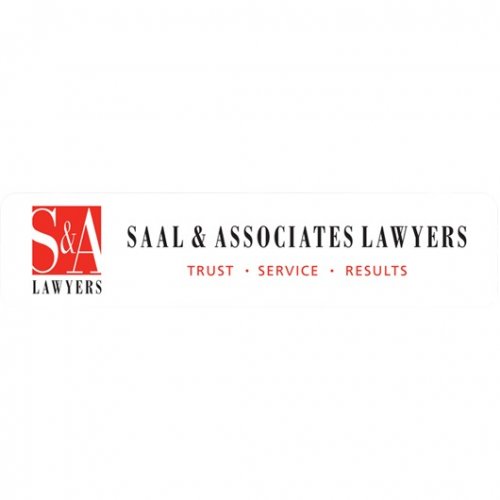Best Corporate & Commercial Lawyers in Brisbane
Share your needs with us, get contacted by law firms.
Free. Takes 2 min.
List of the best lawyers in Brisbane, Australia
About Corporate & Commercial Law in Brisbane, Australia
Corporate and commercial law in Brisbane, Australia focuses on the legal aspects and regulations governing businesses, trade, and commerce within the city and the broader Queensland region. This area of law generally covers the formation of companies, mergers and acquisitions, shareholder rights, business contracts, intellectual property, employment law, compliance, and dispute resolution. Brisbane's corporate and commercial sector is diverse, catering to everything from small start-ups to multinational corporations, and operates within the framework of both federal and Queensland-specific laws. Commercial lawyers in Brisbane help businesses navigate this complex legal environment, ensuring compliance, protecting interests, and facilitating growth.
Why You May Need a Lawyer
There are various situations where individuals or businesses in Brisbane may require the services of a corporate or commercial lawyer:
- Starting a new business and needing advice on the appropriate business structure
- Drafting or reviewing commercial contracts and agreements
- Negotiating mergers, acquisitions, or joint ventures
- Handling intellectual property registrations and disputes
- Resolving partnership or shareholder disagreements
- Ensuring compliance with Australian and Queensland business regulations
- Managing employment law issues and workplace disputes
- Addressing insolvency or bankruptcy matters
- Dealing with consumer law and trade practices claims
- Seeking legal representation in commercial disputes or litigation
Given the complexity of corporate and commercial law, seeking legal advice can help avoid costly legal mistakes, safeguard assets, and ensure the smooth running of your business activities.
Local Laws Overview
Brisbane businesses must comply with both Commonwealth of Australia and Queensland state laws. Key legal frameworks include the Corporations Act 2001 (Cth), which sets out rules for company formation, operation, and director responsibilities, as well as the Australian Competition and Consumer Act 2010 for fair trading and protection of consumers and businesses. Queensland also enforces specific legislation such as the Business Names Registration Act and the Fair Trading Act. Local regulations may differ from those in other states, affecting matters like property, employment, and consumer obligations. Licenses and permits are often required, and local councils may have additional by-laws impacting business operations. It is essential to stay current with Brisbane-specific regulations, as non-compliance can result in penalties or legal action.
Frequently Asked Questions
What is the difference between a corporation and other business structures in Brisbane?
A corporation, usually a company, offers limited liability to its shareholders and operates as a separate legal entity. Other business structures include sole traders and partnerships, which provide less liability protection and different tax implications. Your choice depends on the nature of your business and risk tolerance.
What legal documents do I need to start a business in Brisbane?
Common legal documents include a business registration, an Australian Business Number, partnership or shareholder agreements, employment agreements, privacy policies, and terms and conditions for customers. Consulting a commercial lawyer can help ensure you have everything covered.
How do I protect my intellectual property in Brisbane?
You can protect intellectual property by registering trademarks, patents, and designs with the appropriate government body. Copyright protection is automatic for original works. A lawyer can advise on the best protection strategy for your business assets.
Do I need a lawyer to draft or review contracts?
While not mandatory, having a lawyer draft or review contracts helps ensure your interests are protected and your agreements are legally sound. Mistakes or omissions in contracts can lead to disputes or enforcement difficulties in the future.
What is due diligence in a business sale or purchase?
Due diligence is the process of investigating the legal, financial, and operational aspects of a business before completing a transaction. It uncovers potential liabilities and confirms that the business is as represented. Lawyers often guide these investigations.
How are shareholder disputes handled in Brisbane?
Shareholder disputes may be resolved through negotiation, mediation, or if necessary, litigation. Brisbane courts will consider relevant laws and the company’s constitution or shareholders’ agreement. Legal advice is key to achieving a favorable outcome.
What are my obligations under Australian consumer law?
Businesses must adhere to guarantees of quality and fit for purpose, avoid misleading practices, and honor refunds or returns where required by law. The Australian Competition and Consumer Commission enforces these regulations across Brisbane and Queensland.
What are director’s duties in Brisbane companies?
Directors are bound by the Corporations Act to act with care and diligence, avoid conflicts of interest, act in good faith, and prevent insolvent trading. Breaching these duties can result in personal liability or criminal penalties.
How can my business remain compliant with Brisbane regulations?
Regular legal checkups, keeping up-to-date with regulatory changes, implementing compliance programs, and consulting with a corporate lawyer all help ensure ongoing compliance with relevant laws.
What should I do if my business is facing financial difficulty?
Seek legal advice early to explore your options, which may include restructuring, negotiation with creditors, or voluntary administration. A commercial lawyer can help you navigate insolvency laws and protect your interests.
Additional Resources
Brisbane business owners and individuals can access support and guidance through several reputable organisations and governmental bodies, including:
- Queensland Law Society - Find a solicitor and access legal information
- Australian Securities and Investments Commission - Information on company registration and regulation
- Australian Competition and Consumer Commission - Consumer and business rights
- Business Queensland - Government information for local businesses, licensing, and compliance
- Federal Court of Australia and Queensland Courts - Commercial law proceedings and dispute resolution
- Intellectual Property Australia - IP registration and protection
- Australian Taxation Office - Tax obligations for businesses
Next Steps
If you need legal assistance in corporate or commercial matters in Brisbane, it is recommended to:
- Identify the specific legal issue or question you have
- Gather all relevant documents and details, such as contracts, correspondence, and business records
- Contact a qualified corporate or commercial lawyer with experience in Brisbane law
- Arrange an initial consultation to discuss your needs and receive tailored advice
- Follow through on any recommended actions, such as drafting documents or complying with regulatory filings
Timely legal advice can protect your business, support your growth, and help you avoid costly legal setbacks. Start by reaching out to a trusted legal professional or reputable law firm in your area.
Lawzana helps you find the best lawyers and law firms in Brisbane through a curated and pre-screened list of qualified legal professionals. Our platform offers rankings and detailed profiles of attorneys and law firms, allowing you to compare based on practice areas, including Corporate & Commercial, experience, and client feedback.
Each profile includes a description of the firm's areas of practice, client reviews, team members and partners, year of establishment, spoken languages, office locations, contact information, social media presence, and any published articles or resources. Most firms on our platform speak English and are experienced in both local and international legal matters.
Get a quote from top-rated law firms in Brisbane, Australia — quickly, securely, and without unnecessary hassle.
Disclaimer:
The information provided on this page is for general informational purposes only and does not constitute legal advice. While we strive to ensure the accuracy and relevance of the content, legal information may change over time, and interpretations of the law can vary. You should always consult with a qualified legal professional for advice specific to your situation.
We disclaim all liability for actions taken or not taken based on the content of this page. If you believe any information is incorrect or outdated, please contact us, and we will review and update it where appropriate.
Browse corporate & commercial law firms by service in Brisbane, Australia
Brisbane, Australia Attorneys in related practice areas.

















